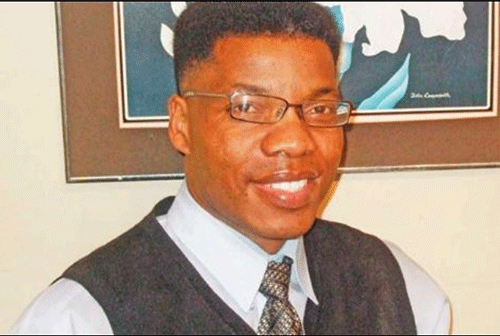Dr Joseph Mulife Muchali
Namibia’s housing shortage is astonishing. As rightly pointed out, “The nation is faced with an acute housing crisis and other economic disparities,” says Erastus Uutoni, Namibia’s minister of Urban and Rural Development, begging the question as to whether Namibia has a plan to address the mounting housing crisis?
According to reports, half a million new houses need to be built to alleviate the housing crisis.
Looking at those numbers, if Namibia does not have strategies, it is almost impossible to accomplish the task within a span of five to 20 years.
By then, the demand for housing would have doubled or tripled, making the whole exercise nearly impossible. Thus, it is racing against time, whose luxury the citizenry does not have. Surely, the predictions are scary, and time waits for no man.
In essence, even if those houses were to be built, the sad part is that over 80% to 90% of Namibians would not qualify for a mortgage to buy them.
A dire situation for the lowly-paid government officials and those in the private sector – shop stewards, security guards, petrol attendants, taxi drivers, maids and many others in the same categories.
Meaning, for the thousands of Namibian citizens, the dream of owning a house is all but a fantasy, especially in cities and towns – to a point where even those having middle managerial and well-paying jobs are struggling to make ends meet, which is why home repossession is on the rise.
The truth is the mortgage and other essential expenses are choking many to “death”, as inflation keeps rising against stagnant wages. Indeed, that breeds a frustrated citizenry that finds itself caught between a rock and a hard place.
No wonder that thousands of Windhoek residents live in the shacks and informal settlements, a situation that comes with many challenges – lack of sanitation, lack of privacy, lack of security, lack of happiness plus many negatives that eat up a person at night, pondering what the future holds.
If anything, those are issues different municipal councils in villages, towns and cities must work 24 hours/seven days a week to find solutions to.
Not surprisingly, in 2019, President Dr Hage G. Geingob, the People’s President, summed all that up by stating that “The living conditions of informal settlements residents should be declared a national humanitarian crisis”.
The President was right; those living conditions are just inhumane and unbearable – to which His Excellency did ask, “A person would come from that condition – how will their mental state be?”
Simply, many in the informal settlements are psychologically traumatised, confused, depressed – and to some extent, lack self-esteem, which could lead to abuse of alcohol and drugs, absenteeism from work, gender-based violence, criminality, sickness, school drop-outs, and much worse.
All those negatives rob a nation of men and women who could play a bigger part in building a peaceful and prosperous country. Again, it is not for the President to do the municipal work, but to point the direction of where Namibia should be headed.
The concern was noteworthy, a wake-up call to those entrusted with the mandate to provide housing. That is what a visionary and exemplary leader does. Let us call that constructive criticism at its best.
Without any question, the Ministry of Urban and Rural Development must champion ideas. Today, Namibians read and hear more of scandals, disunity, in-fighting and mal-functioning administrative bodies than success stories, which is demoralising. Until order is brought back to those municipal and regional bodies, the masses will be starved of service delivery.
With the mushrooming rental buildings, the thousands of working men and women are caught up renting for ages, which is exhausting.
The rental costs are going high, so much so that even saving for a down payment becomes difficult – to say the least. This is a form of enslavement and exploitation of fellow citizens.
Now, having highlighted the sad reality facing the thousands in the Land of the Brave, does it mean that most Namibians will never own a decent housing structure? Is there a solution to Namibia’s housing dilemma?
Certainly; such a possibility exists if those in power put their heads together and find immediate solutions to the crisis. So far, many Namibians are struggling to build their structures at a slow pace – given the capital troubles.
The financing of such projects is hitting Namibians so hard that many structures get abandoned in the process.
On a positive note, Namibia has already pushed the right buttons via the Government Institutions Pension Fund (GIPF), where individuals will be allowed to use part of their pension funds to build their own houses. If anything, it was a smart GIPF move that should be applauded by all Namibians.
On financing, seeing the hardships many individuals and families go through – think of home repossession, should the public-private partnership be encouraged, especially where the other party is profit-driven? Definitely not! A trap that should be avoided by all means.
If one were to say it again, the 20-year mortgage should be a thing of the past. If one can borrow a million-dollar loan on a vehicle and pay everything within five years, why not a house costing the same amount? Simply, housing loans are commercial banks’ cash cow – milking clients to the marrow.
Winding up, if there was a choice, given the right to proper housing and shelter for every citizen, the government could shoulder the responsibility of providing housing to all – not with the National Housing Enterprise or anything that resembles the failed Mass Housing Development Programme, but something new.
It can be done without breaking a sweat! All that is needed is the political will and vision.
* Dr Joseph Mulife Muchali is a keen scholar of political studies. The views expressed in this article are his own and do not represent anyone or any organisation. – Cell: (081) 868-0628


